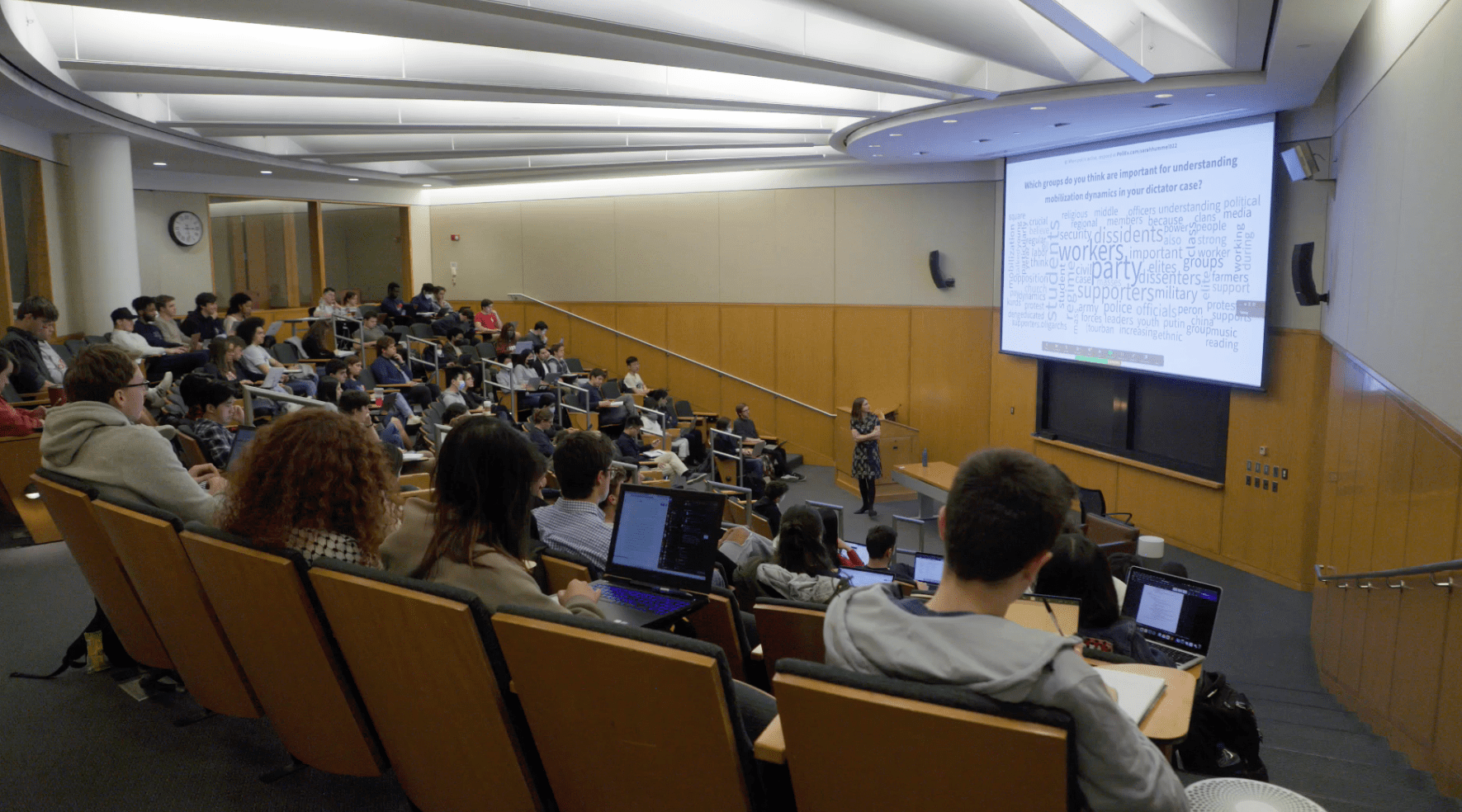Frequently Asked Questions
How are honors determined?
Please see pp. 42-45 in the Guide to Writing a Senior Thesis in Government.
However, in brief the process is such: Two readers assess the thesis (in the case of joint theses, at least one reader in each department reads the thesis). If the two readers’ grades differ by more than one full grade, the thesis is sent to a third reader. In the former case, the grades are simply averaged; if a third read is required, the median grade is weighted at 50% and the outliers at 25%. If a graduating senior is a potential candidate for highest honors, he or she may be asked to sit for an oral exam as well. If that is the case, the grade received in the oral exam is also averaged in. Next, the Faculty Concentration Committee meets to set a provisional cutoff for each level of honors (this differs from year to year). Once this is done, the thesis grades and concentration GPAs are examined in a faculty meeting open to all thesis advisors and faculty members. There, the final honors determination cutoffs are drawn. Once this is done, the English honors have been determined for the Department. However, it is ultimately the University that awards Latin honors on the diploma, so the Department forwards our honors recommendations to University Hall, where the cutoffs for Latin honors are decided separately, with an eye to their distribution across the entire graduating class.
Can I drop the thesis if I need to?
Yes, you may. Each year, whether due to having picked a topic that proves intractable to research or deciding that other commitments are more pressing, a small number (usually not more than 10%) of thesis writers abandon their thesis project. If you know you will not continue to write past the Fall term, complete the requirements for that semester’s Gov 99 and do not register for 99 in the Spring term (it is divisible for precisely this reason). However, if you register for the second half of Gov 99 and do not drop it by the Add/Drop deadline, you’ve committed to handing in a thesis in March. Please stay in touch with the Department and, if you have any inkling that you may not be able to finish the thesis, let us know as soon as possible. Under certain circumstances, we may be able to convert the thesis into Gov 91r: Supervised Reading and Research, if you so desire (and need the credit to graduate).
What is the role of Gov 99 in the thesis-writing process?
Gov 99 is meant to help you write the thesis in three main ways: 1) by providing deadlines to keep you on track and get your writing; 2) by focusing on peer-review of your work; 3) and by building a small and supportive community of individuals who are in the same boat as you are.
The Department takes Gov 99 seriously, which is why only faculty members and the most experienced TF are selected to teach this course. In general, you should think of it as playing a supporting role to the advice and mentoring you get from your primary adviser. A good way of thinking about this is that your primary adviser is helping you with the content of the project, and Gov 99 is (hopefully) helping you with more prosaic details (e.g., discussing how best to organize chapters, explaining what role a literature review plays, talking about how to effectively present data or cite sources, and so on).
Note that the successful completion of Gov 99 in the Fall term is a requisite to continuing to write a thesis. Meanwhile, Gov 99 in the Spring term culminates in the physical submission of the thesis to the Department (but is completely independent from the grading of the thesis itself).
Do I need to complete additional classwork to be eligible to write a thesis?
Yes. Please see “concentration requirements” under academics.
What are the “right” reasons for writing a senior thesis?
The “right” reasons for writing are many: the satisfaction of digging deep into a topic and seeing a long capstone project through; proving to a PhD admissions committee you “have what it takes” to become a professional academic; taking that last opportunity before finding a job to explore something you’re really passionate about; and yes, even just to get the highest level of honors you can.
However, there are other ways to make your last year at Harvard memorable, and these may even be a better use of your time. The point is, only you can determine if writing a thesis is “right” for you. You shouldn’t write a thesis because you think you need to do so in order to get into law school or business school (you don’t), or because someone told you it is what everyone does (not true). If you do write a thesis, it should be because this is something you want to do for yourself. And if you decide that instead of writing a thesis you’d rather take great class you never had time for, devote more time to an extra-curricular activity, or even study for your LSATs or GMATs—that’s okay too.
Do I need to write a thesis to get honors?
Government is an honors-optional concentration and a thesis is required to get departmental honors (summa cum laude, magna cum laude, or cum laude in Government).
Concentrators who don’t write a thesis can still graduate with “cum laude for the overall record” if they have a sufficiently high overall GPA (for June 2018 graduates, the cutoff was a 3.844 out of 4). Please refer to the Harvard College Handbook for Students for more details about this option.
